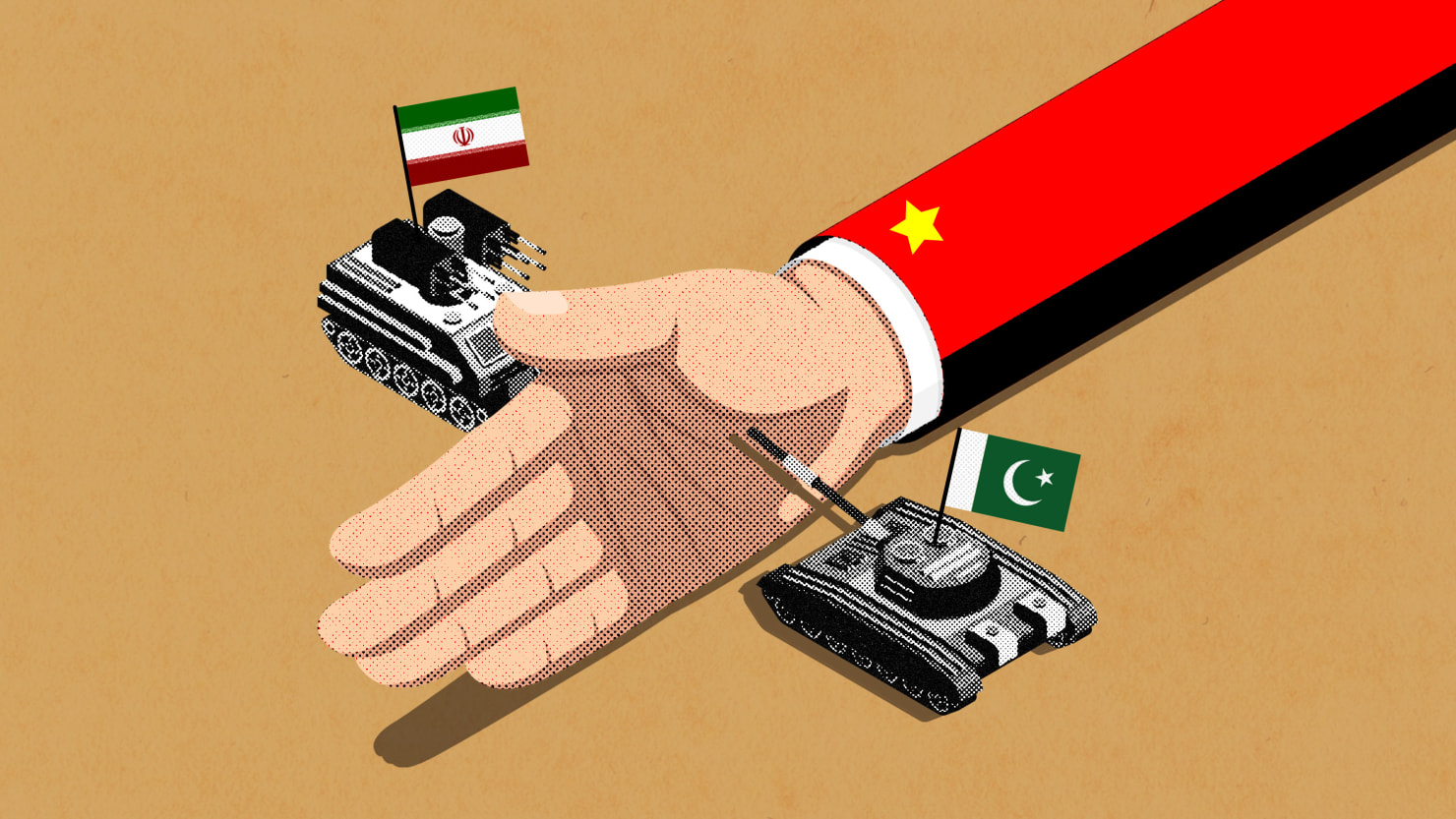Thursday’s retaliatory airstrike by Pakistan against Iran, which has raised fears of a wider conflict, almost certainly could not have happened without China’s consent. And only China can effectively reduce tensions between two neighboring countries.
Pakistan reportedly retaliated for an Iranian airstrike in the southwestern province of Balochistan 24 hours later by attacking an alleged terrorist base in Iran’s Sistan-Balochistan province. In the wake of retaliatory attacks by Iran and Pakistan, China is now poised to exert its influence on both countries, urging restraint and negotiated solutions, and gaining exclusive access.
Pakistan’s retaliatory air strikes against Iran put the ball back in Tehran’s court. A new retaliatory attack by Iran against Pakistan could lead to an all-out war between Iran and Pakistan. Further destabilization of Pakistan (particularly the restive Balochistan province that borders Iran) is not in Beijing’s interest. China is the largest foreign investor in Balochistan, where it operates the deep-sea port of Gwadar and the Saindak gold mine near the Pakistan-Iranian border.
A broader conflict would undoubtedly be detrimental to China’s interests in the region. At the same time, leaving Balochistan vulnerable as a soft target for foreign powers to attack targets in the province would not be in the strategic interests of either China or Pakistan. Pakistan’s retaliatory strikes sent a message to China and all regional powers hostile to Pakistan that any aggression against Chinese interests will be met with force.
China’s interests are steadily increasing in the strategically located Balochistan province. Beijing cannot tolerate foreign interference or influence in Pakistan, especially in Balochistan, where it has invested heavily in the China-Pakistan Economic Corridor (CPEC), the flagship project of China’s Belt and Road Initiative (BRI). But that is why Islamabad has steadfastly refused to allow the US to set up bases on Pakistani territory after its withdrawal from Afghanistan in 2021.
The US military has been using Shamsi Air Base in Balochistan province, which borders Afghanistan, to attack targets inside Afghanistan since the US invasion in 2001. President Joe Biden’s administration had hoped that Islamabad would continue expanding similar facilities after the withdrawal of U.S. troops from Afghanistan, but Islamabad could potentially Ensure that providing air bases to the United States does not conflict with China’s interests. (Pakistan was not a member of China’s Belt and Road in 2001.)
Islamabad claimed Thursday’s airstrike successfully hit a hideout used by separatist Baloch groups, including the Balochistan Liberation Army (BLA), in Iranian territory. BLA is an ethnic Baloch separatist group fighting for the independence and separation of Balochistan from the Pakistani state.
The BLA is vehemently anti-China and has carried out numerous suicide bomb attacks against Chinese nationals in Pakistan. For example, in 2018, the BLA attacked the Chinese consulate in Karachi, a port city in southern Pakistan. In 2019, the same group attacked Chinese tourists at the Pearl Continental Hotel in Gwadar. In 2022, a suicide bomber carried out by a female BLA suicide bomber killed four people, including three Chinese teachers and a Pakistani driver, outside Karachi University’s Confucius Institute in Karachi.
The BLA called on China to withdraw its interests from Balochistan and close all projects under CPEC, the flagship Belt and Road project. In 2022, the extremist group warned China in a video message on social media: “Baloch Liberation Army will ensure that CPEC fails miserably in Baloch land… There is still time to quit Balochistan or you will witness retaliation from Baloch sons and Baloch.” Girls you will never forget. ”
Iran’s airstrikes against Pakistan gave both Islamabad and China an opportunity to attack BLA bases inside Iranian territory. And they didn’t miss the chance.
Again, it is highly unlikely that Pakistan would have conducted airstrikes against Iran without trusting its all-weather friend and strategic partner China. Following retaliatory attacks by Iran’s Islamabad, the Chinese government offered to mediate between Iran and Pakistan. “The Chinese side sincerely hopes that the two countries can exercise calm and restraint and avoid escalating tensions,” Chinese Foreign Ministry spokesperson Mao Ning said. “If both sides wish, we are ready to play a constructive role in defusing the situation,” he said.
Tehran and Islamabad both have friendly relations with the Chinese government. China is one of the largest importers of Iranian oil. With Iran’s cooperation, China has been able to expand its influence in the oil-rich Middle East region. Pakistan is China’s closest and historical friend. Both Pakistan and Iran are members of the Chinese-led Shanghai Cooperation Organization (SCO).
China has every ability to mediate between Tehran and Islamabad, as neither country can afford to ignore Beijing’s calls for peace. Moreover, failure to ease border tensions could make China the real loser in the Iran-Pakistan war game, leading to a broader conflict involving the entire region.
